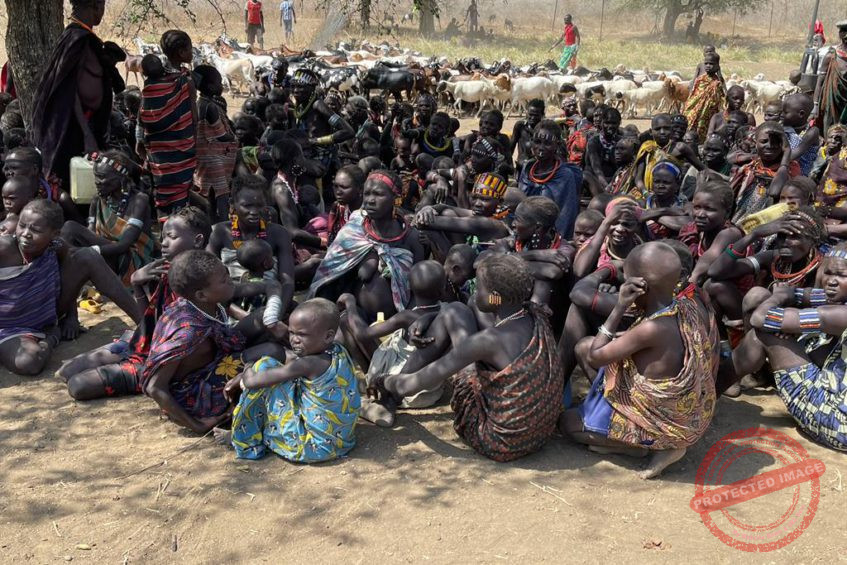You are here: Home | Economy | Humanitarian | National News | News | Thousands flee hunger in Eastern Equatoria State

Hundreds of people mainly women and children have arrived in Kapoeta North while others have crossed into Ethiopia in search for food and drinking water. Photo: Emmanuel Lolimo, Commissioner, Kapoeta North
Hundreds of families have fled their villages in Kapoeta East of Eastern Equatoria with others crossing into Ethiopia to escape extreme hunger in the area. This is according to Abdullah Lokeno, the County Commissioner.
Some photos shared with Eye Radio on Tuesday show women, elderly persons, children and their livestock arriving at Wokobu Payam of Kapoeta North County.
Lokeno also said unspecified number of his population have crossed into the neighboring Ethiopia in search for food and drinking water.
“I am appealing to the national and state government and all aid agencies to come quickly to rescue my communities here in Kapoeta East with food assistance because if it rains, it will be difficult for vehicles to reach areas where people are starving.”, Lokeno was speaking from the area on Tuesday.
When contacted by Eye Radio, the Commissioner of Kapoeta North confirmed the arrival of hunger-displaced persons in his County.
Epone Emmanuel Lolimo estimates that over 3,000 arrived in the country as of last week.
“Last week, we received 3,500 and they continue to come I am sure by now the number have increased”, Lolimo says.
Lolimo describe the condition of those fleeing as deplorable.
In November last year, Eastern Equatoria state Governor Louis Lobong Lojore warned of possible looming hunger in the state this year.
Lobong had called on humanitarian agencies to intervene to avert the situation.
In Eastern Equatoria, rainy season normally starts in April or May but last year, most parts of the state received little rain.
The Integrated food Security phase classification report of 2020 indicated acute food insecurity in the country with some counties categorized as phase five.
This has been attributed to a number of reasons such as conflict and natural disasters like floods and prolonged drought which has disrupted livelihoods of the local people.
South Sudan largely depends on imported food commodities from the neighboring countries, despite its huge potential in agriculture.
Most of the country’s land is arable but only 4% of it is cultivated, according to the official information from the Ministry of Agriculture.
Support Eye Radio, the first independent radio broadcaster of news, information & entertainment in South Sudan.
Make a monthly or a one off contribution.
Copyright 2024. All rights reserved. Eye Radio is a product of Eye Media Limited.